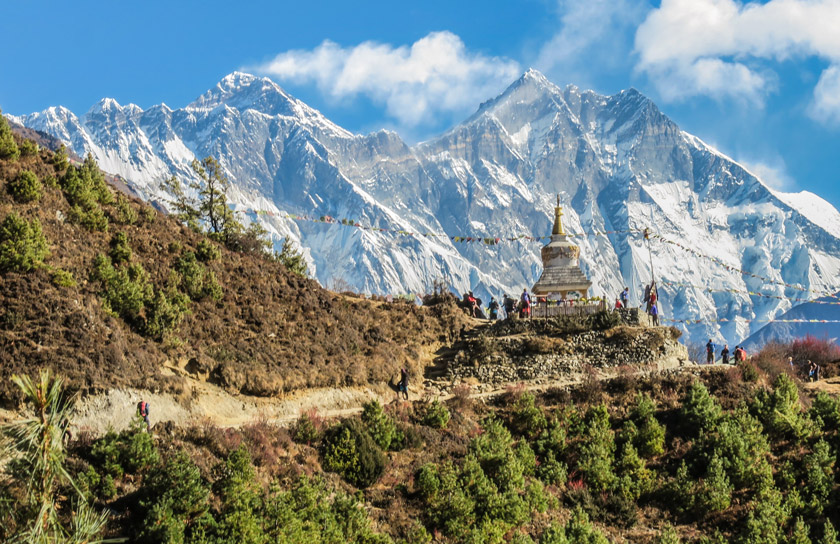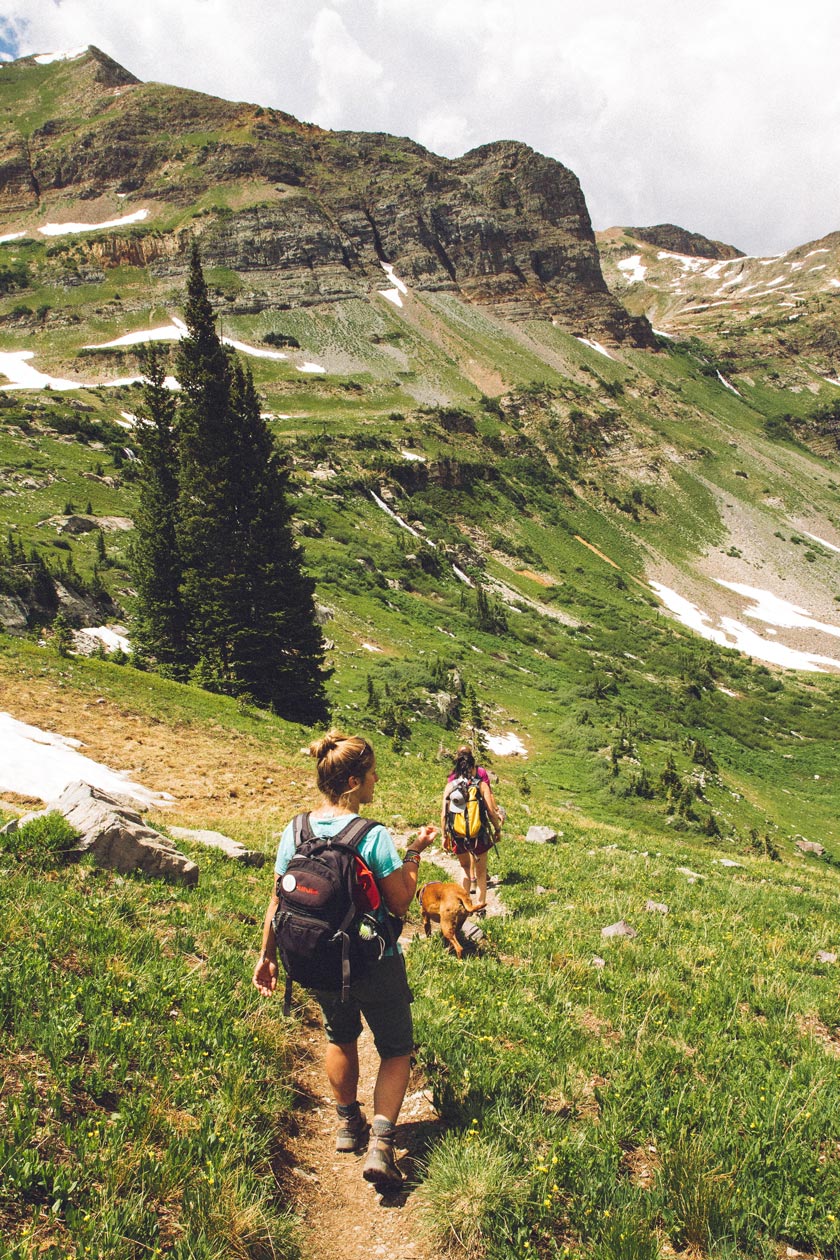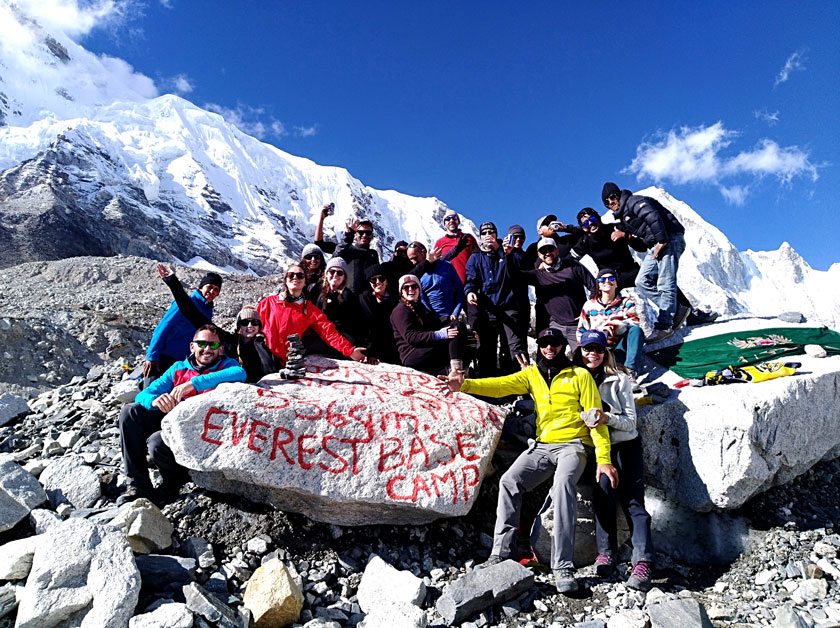3 Excellent training tips to get you prepared for Everest Base Camp Hike

The Everest region of Eastern Nepal is a unique paradise for mountaineers and hikers. You’ll find remote, rugged terrain in the mountainous region, beautiful trails through forests and riversides, and plenty of teahouses to eat and sleep for the night, along the multiple days hiking journey.
The magnificent views of the Himalayan peaks and awe inspiring landscapes will have you hooked. For hikers, getting to the base of the world’s highest peak, Everest Base Camp (EBC) which offers the most impressive viewpoints of high mountains, is truly breathtaking.
On the other side, you shouldn’t come to hike EBC unprepared. If you prioritise trekking to Everest Base Camp or sign up for one, now is the time to start some training and make it more manageable. Check out these excellent tips on how to train for the EBC hike.
1. Strength and Conditioning
Everest Base Camp hike is multiple days hiking over 2 weeks, where you will be hiking 5-8 hours per day up to a maximum altitude of 5,555 m. Usually, you will gain an altitude of 500 m (1,640 ft) elevation each day during the trek.
For most travelers whether they need fitness training or not depends on their current physical condition. There are a host of exercises you can do to improve your strength and balance, as a result, stamina and endurance, which is beneficial on your hiking.

Your strength and conditioning regimen should include some cardio training, body weight exercises or gym workouts to keep you physically and mentally fit. You can make regular time for strength and cardio exercises 3-4 times per week for at least 8-12 weeks before your actual trek. Likewise, on a daily basis, you can do body weight exercises such as planks, squats, burpees, leg presses, push ups ups etc. Besides, you can incorporate outdoor activities like running, swimming, cycling into your training schedules.
Of course, strength and conditioning is the key as long as you are trying to push your physical limit and be fit, you will accomplish this trek successfully.
2. How to mentally prepare for EBC Trek
EBC Trek is an amazing adventure, and you need the right mindset to enjoy this journey to the fullest. Remember, you are out there for holidays and you need to prepare for the unexpected.
On the mental side of things, you can do some activities to take a weight off your mind. The main thing you can do is practice hiking before the main trek. You should start hiking in significant hills or mountain terrain in your area at least once a week for 2-3 months before your trek.
More than the distance, you should focus on the duration; being able to hike 5-6 hours in uphills and downhills trails with minimal breaks would give you a mental lift required for the trek. Make sure you are comfortable with your hiking boots and the route includes uphill and downhill slopes.
For more challenging prospects, you can carry your backpacks and add a bit more weight gradually as you practice. Further, if you don’t find local trails in your area., you can practice stair stepper twice a week and walk hill intervals on a treadmill. As long as you understand how far you can push yourself and listen to your mind and body, it will surely help you prepare mentally for the trek.
3. Maximize Acclimatization
Though physical fitness is a must, there is no guarantee that you won’t be affected by altitude sickness. In many cases, it is almost inevitable that you suffer from bad headache or symptoms of altitude sickness at some point along the journey. You can prepare so much, but you don’t know exactly how your body adapts in a new environment like the Everest region, especially at higher elevation with lower oxygen levels.
On our Everest Base Camp Trek 14 days journey, you will stay at an altitude above 4000 m for 4 nights and above 5000 m for one night, where there is 50% less oxygen than sea level. The volume of oxygen declines with the rise in altitude. So, here are some steps you can follow before the actual trek to get familiar at higher altitudes.
Prepare yourself as close to similar heights as possible
Generally, trekkers who come from sea level start to show some altitude effects – fast heartbeat, lightheadedness, dehydration, gastrointestinal distress, lowered performance etc., above 1500 m.
One really good way to prepare for this is spending 4-5 nights at higher elevations, if possible. This adds some adjustment time and helps your body to ease at higher altitudes.

Besides, there are other alternatives you can apply to pre acclimatize in your familiar environment. For instance, sleep in high altitude tents in your living room, using portable altitude simulators while you are training at home. Note that these training techniques help, but not as much as being at real altitude.
Watch your Nutrition and Hydration
In terms of nutrition, you should be careful with what you eat. Make sure your diet includes good carbs, protein, veggies, vitamins, and minerals like iron, potassium, all the rest of it. Next, hydration is an excellent choice to maximize acclimatization. So, drink plenty of fluids (4-5 liters) each day to keep your body well hydrated.
Are you ready for Everest Base Camp Trek?
Every year, Trekking to Nepal takes thousands of trekkers to EBC. We put things in perspective, as it is a long route (over 97 miles/ 156 km), 8 days up and 3 days down to complete the entire trek route. Our 14 days EBC trek itinerary includes 2 days acclimatization at Namche (3,441 m) and Dingboche (4,350 m). On average, we climb 500 m elevation each day. Keeping that in mind, we emphasize going slow and steady helps to beat the symptoms of altitude sickness, as well as enjoying the scenic view en route. Otherwise, if you are not having fun on the hike, what’s the point?

Get prepared with our training tips and reach your EBC hike goals this year with us.
